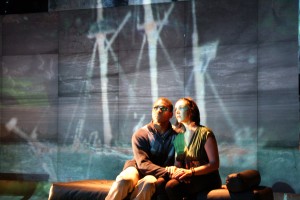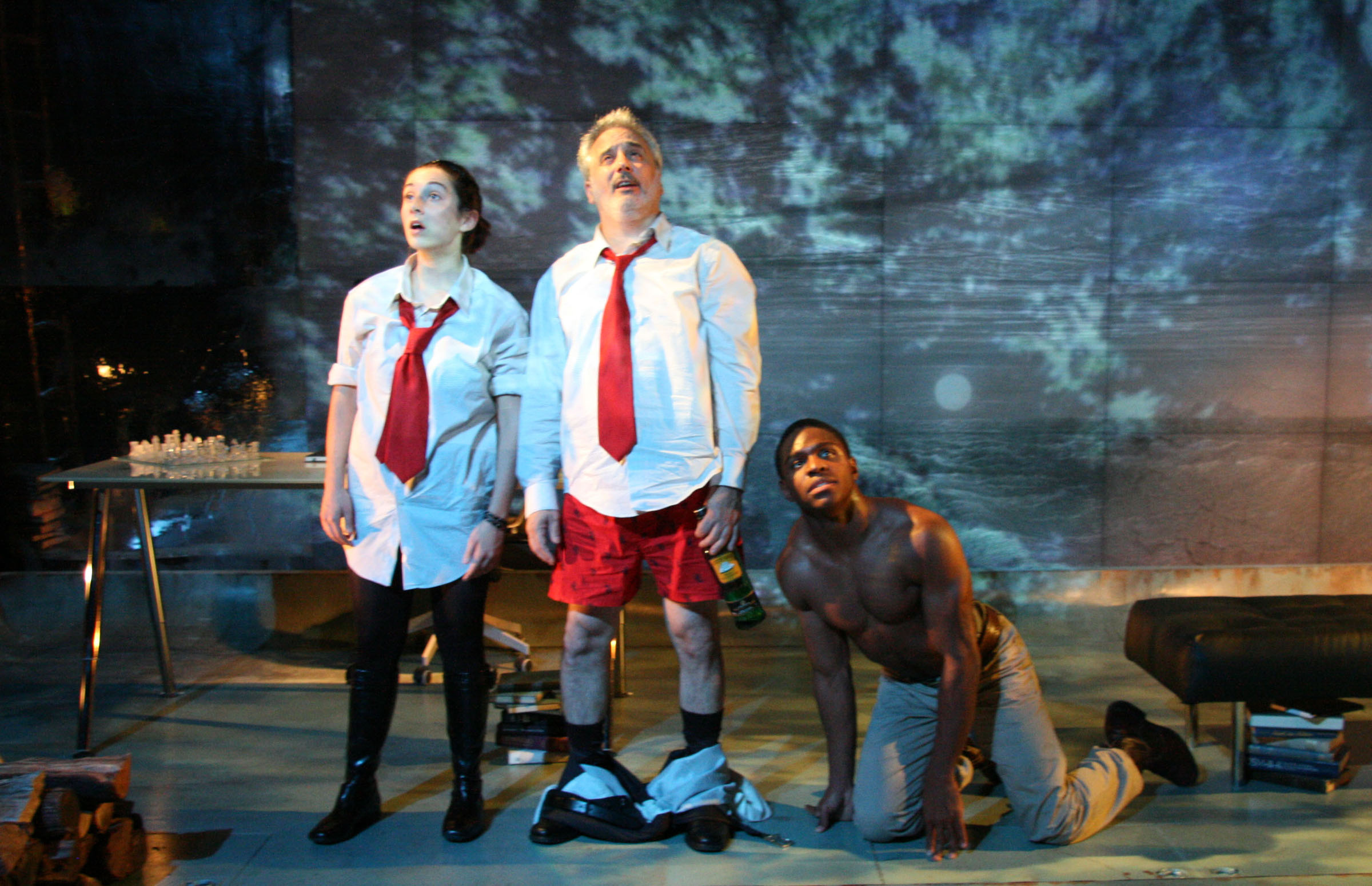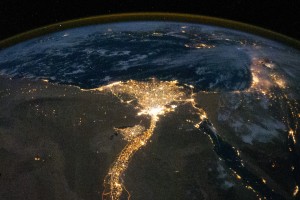Here’s a local e-review of the Cutting Ball Tempest in San Francisco:
Ferdinand and Miranda
Via bloggingshakespeare.com, here’s an interesting post & slideshow about our young lovers —
The Tempest at the bottom of the pool
Nile River Delta by Night
Two exercises for E. 110 students
I’d like each of you to do two quick things before class tomorrow night.
First, choose a book from among Peter Greenaway’s fantasia of Prospero’s two dozen volumes. Write two or three sentences that show how this particular book unlocks some hidden truth or logic within Shakespeare’s play.
Second, choose any other text from this week’s assignment in “Rewritings and Appropriations.” Write two or three sentences showing how that creative work speaks to your own seminar project.
Please be prepared to share these with the class tomorrow night.
Caliban upon Setebos
Our Norton Tempest has only a slice of Robert Browning’s great poem, “Caliban upon Setebos.” The rest can be found at this link, and it’s very much worth reading.
Derek Owens on Composition and Sustainability
I’m looking forward to reading your short papers, which should start rolling into my email inbox any hour now. As we all get ready for our next meeting, on Oct 19, here’s a link to our special guest Derek Owens’s 2001 book, *Composition and Sustainability*. The whole text is online. Read as much as you like, but at least the preface plus the first & last chapters. (That’s a good model for dipping into a scholarly book, btw — first chapter, then the last, then see what you need from the middle.)
“Let us spurn earthly things”
We’ll likely spend most of our time tomorrow night on 20c responses to The Tempest, esp Cesaire’s and some of the other modern critics. (Lamming seems to have aroused some interest already.) But I wanted to put a word in early for the little snippets of source text that precede those essays, inc Pico’s “Oration,” from which the title of this post comes.
These snippets are hard to read (esp the shorter ones), and sometimes hard to follow (esp when excerpted), but they repay the effort. Pico’s phrase might help us think about the philosophical basis for Prospero’s treatment of Caliban (whom he calls “thou earth” in 1.2), and more broadly about intellectual aspiration and what it does in this play.
For any who are wanting to work on post-colonial readings, too, I strongly suggest looking closely at Samuel Purchas (93-5), who gives a succinct summary of the reasons Englishmen felt justified in colonizing the New World.
Maritime Quarters
Guam (found at Starbuck’s in the Baltimore Hyatt during the Maritime Heritage Conference last week) went to Olivia. Northern Marianas Islands (found this morning at St. John’s) to Ian.
The wages of coffee…
Thalassological Readings
For my grad class for next week’s reading, here are pdf versions of two articles that give you a pretty good idea of my recent work in maritime ecocriticism. When I get back from this conference, I’ll post a little bit more background, but in case you want to get started reading, here they are.
Toward a Blue Cultural Studies
Note: I’m having some trouble with the first link. I’ll try to repair it but might not get to that until tomorrow (Fri). You can also find that article in the journal *Shakespeare*.
Seems to work now! Let me know if you have any problems.
- « Previous Page
- 1
- …
- 36
- 37
- 38
- 39
- 40
- …
- 43
- Next Page »


